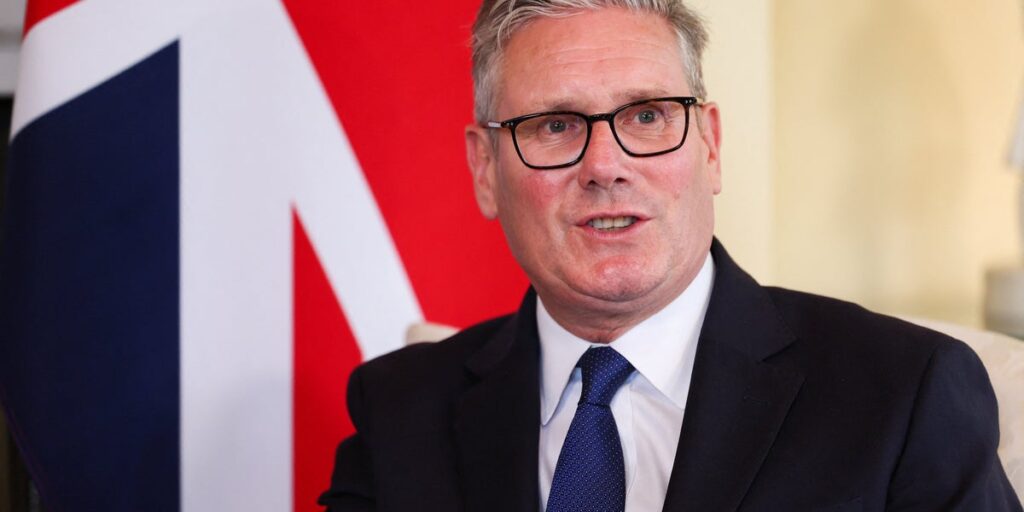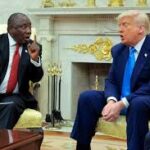Sir Keir Starmer’s leadership of the Labour Party has been defined by his promise to restore discipline and professionalism after the turbulent Jeremy Corbyn era. His recent decision to suspend multiple MPs—including high-profile left-wing figures—has sent shockwaves through British politics. While supporters argue this demonstrates strong leadership, critics warn it could backfire, painting Starmer as ruthless and divisive.
This article examines:
- Which MPs were suspended and why?
- The political strategy behind Starmer’s crackdown
- The risks of appearing overly punitive
- What this means for Labour’s unity ahead of the next election
With Labour leading in the polls, Starmer’s handling of internal dissent could make or break his path to Downing Street.
The Suspensions: Who’s Affected and Why?
Key MPs Suspended Under Starmer’s Leadership
- Diane Abbott – Labour’s first Black MP was suspended in April 2023 over controversial remarks about racism. Though later reinstated, her treatment sparked accusations of disproportionate punishment.
- Jeremy Corbyn – Suspended in 2020 after refusing to fully retract his response to the EHRC report on antisemitism. He now sits as an independent.
- Sam Tarry – Sacked as shadow transport minister in 2022 for unauthorized media appearances during strikes.
- Andy McDonald – Suspended in October 2023 for using the phrase “between the river and the sea” at a pro-Palestine rally.
- Kate Osamor – Suspended in January 2024 after appearing to compare Gaza to a genocide in a Holocaust Memorial Day post.
Starmer’s Justification: Restoring Discipline
Starmer’s team argues these suspensions are necessary to:
- Enforce party rules after years of perceived laxity under Corbyn.
- Distance Labour from past controversies, particularly antisemitism.
- Present a united front ahead of the general election.
But critics see a pattern of targeting left-wing figures while tolerating dissent from centrists.
The Political Strategy: Purge or Principled Stand?
1. Cementing Control Over Labour
Starmer’s leadership campaign promised to “tear out antisemitism by its roots” and professionalize Labour. Suspensions like Corbyn’s and Abbott’s send a clear message: dissent won’t be tolerated.
2. Appealing to Moderate Voters
With Labour leading the Tories by 20+ points in polls, Starmer is prioritizing electability over ideological purity. By sidelining the far-left, he hopes to reassure swing voters that Labour is a safe choice.
3. Preventing Future Infighting
The Corbyn era was marred by bitter factional wars. Starmer’s hardline approach aims to prevent a resurgence of the left—but risks alienating a vocal segment of Labour’s base.
The Risks: Is Starmer Going Too Far?
1. Backlash from the Left
- Grassroots Anger – Many Labour members see the suspensions as a purge of socialist voices.
- Threat of Splinter Groups – Hard-left MPs could form a breakaway movement, weakening Labour’s majority prospects.
2. Accusations of Hypocrisy
- Double Standards? Centrist MPs like Wes Streeting have faced no consequences for controversial statements.
- Free Speech Concerns – Some suspensions (e.g., McDonald’s) have been criticized as overreach on political speech.
3. Electoral Consequences
- Depressed Turnout – If left-wing voters feel disillusioned, they may stay home on election day.
- Media Narrative of “Vindictiveness” – Opponents can paint Starmer as authoritarian, undermining his “change” message.
Case Study: How Abbott’s Suspension Backfired
Diane Abbott’s suspension in 2023 became a lightning rod for criticism:
- Racial Dynamics – As Labour’s first Black MP, her treatment raised questions about discrimination within the party.
- Public Sympathy – Even centrist commentators argued the punishment was excessive for a single letter.
- U-Turn Damage – After months of delay, Starmer reinstated her—but the optics of indecision hurt his authority.
This episode showed the perils of heavy-handed discipline.
Historical Precedent: Labour Leaders Who Purged—and Paid the Price
Tony Blair (1994-2007)
- Tactical Suspensions – Blair marginalized the “Old Labour” left to rebrand the party.
- Result: Electoral success, but long-term erosion of party roots.
Neil Kinnock (1983-1992)
- Cracked Down on Militant Tendency – Expelled far-left factions to modernize Labour.
- Result: Credited with saving Labour, but failed to win an election.
Starmer’s approach echoes these leaders—but will it work in 2024?
What’s Next for Labour?
Short-Term: Managing Fallout
- Rebuilding Trust with the Left – Starmer must avoid appearing exclusively punitive.
- Clarifying Red Lines – Clearer guidelines on suspensions could prevent accusations of bias.
Long-Term: Election Impact
- If Labour Wins Big – Starmer’s strategy will be vindicated as necessary ruthlessness.
- If Results Underwhelm – Critics will blame demoralized left-wing voters staying home.
Conclusion: A Necessary Evil or a Dangerous Gamble?
Keir Starmer’s suspensions have undeniably tightened his grip on Labour, but at what cost? While his supporters argue that tough decisions are needed to win, the risk of appearing vindictive or factional remains real.
The coming months will test whether Starmer’s iron-fisted approach secures Labour a landslide—or sows divisions that haunt him in government. One thing is clear: the era of Labour’s civil war isn’t over yet.

